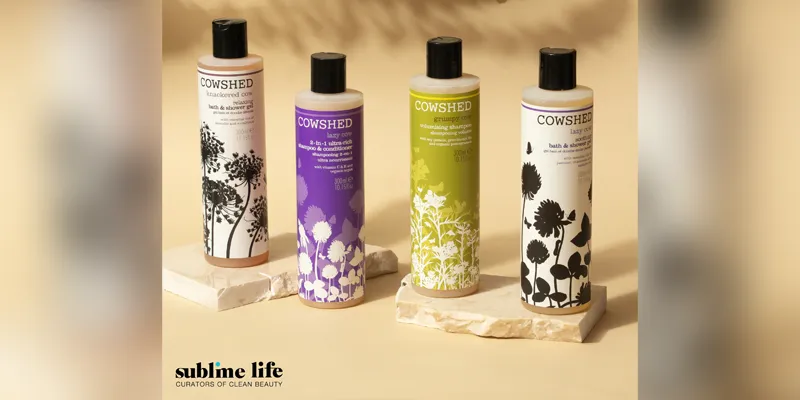This 112-year-old Group is betting on D2C to become a leader in beauty and skincare industry
Ador Group was established in 1908 by five friends. The group has a total of nine companies of which three are listed on the BSE. The consolidated turnover of the group is over Rs 800 crore.
COVID-19 pandemic can prove to be a game-changer for India for two reasons. It has compelled Indian businesses to go digital which will improve the efficiency of their operations and it has shifted the focus of the world from China as the largest exporter of raw materials and many products.
With the clamour around ‘Vocal for Local’ growing, there is a good opportunity for domestic manufacturers to not only consolidate themselves in the local market but also expand their horizons in the international export market.
Mumbai-based Ador Multiproducts Ltd, the skincare and beauty vertical of Ador Group, has similar plans. Ador Group was established in 1908 by five friends. The group has a total of nine companies under it including welding, beauty, and ecommerce segments. The consolidated revenue of the group is over Rs 800 crore. Three of the nine companies are listed on the Bombay Stock Exchange.
Today, the fourth generation of these families run the business including Ninotchka Nagpal, Ravin Mirchandani, Aditya Malkani, Deep Lalvani, and Tanya Advani.
SMBStory spoke to Deep Lalvani, Ador Multiproducts Ltd, about the brand and its future plans.
Edited excerpts from the interview:
SMBStory [SMBS]: Ador Group is more than a hundred-year-old company. How have you managed to innovate and stay relevant over this long period of time?
Deep Lalvani [DL]: After completing my MBA from Manchester, I came back to India and initiated a number of new projects for the group, including starting up the Ador Welding Academy, a training institute that upskills unemployed youth in welding and makes them employable welders.
Additionally, the fourth-generation entrepreneurs have diversified into new-age businesses based on what the country needs and will be needing in the coming years. For example, we make 3D printed invisible aligners for the dental market.
The group invested in the personal care space to start Ador Multiproducts Ltd in 1986 when we came across an opportunity to partner with a brand from USA, English Leather.
Till date, we have managed to remain debt-free. Recently, we also completed a fund raise worth Rs 3 crore through a preferential allotment with strategic investors and promoters being a part of the round.
SMBS: Your core area is beauty and personal care. Can you tell us more about the business?
DL: At Ador Multiproducts, we manufacture several products in the beauty and skincare space including talcum powders, lotions, hand creams, men’s grooming products, etc at our manufacturing facility in Puducherry. We are third-party contract manufacturers for companies like Himalaya, Apollo, TTK, among others.
We have also been manufacturing hand sanitisers for the past 15 years.
Initially, we were only focussed on B2B clients but we are now transitioning to a full-service provider and building an ecosystem in India for clean beauty brands as well as investing in strategic brand partnerships.

SMBS: What are the other areas you have diversified into in the D2C space?
DL: We saw an opportunity in the D2C space. That’s when we started building capabilities in the clean beauty brands domain. Last year, we launched Sublime Life. With a portfolio of 36 brands, including three brands of our own, we wanted to become a curator of clean beauty on the pillar of sustainability. The turnover pf Ador Multiproducts (subsidiaries included) is almost Rs 10 crore.
At Sublime Life, we provide plastic-free shipping. We also started an initiative wherein we encourage consumers to return the used bottles so that we can recycle and upcycle them and reward them with some loyalty points.
The platform has international brands like Cowshed, Sukin, and Martiderm listed. The cost of products is between Rs 150 and Rs 7,000.
We are not a marketplace nor are we competing with the likes of Amazon or Flipkart. We would like to position ourselves as curators of clean beauty, building a platform on the pillar of sustainability.
SMBS: How have you managed to remain debt-free over the years?
DL: There is a strong internal control on risk management. Our risks are very structured and focus is on what is important for running the business.
We are perceived to be conservative. But we are very aggressive in the business and not as conservative as we are made out to be. For example, we are not used to having big budgets for marketing as is the case now but we had to gradually negotiate and navigate that bit as well.
SMBS: What is the impact of COVID-19 on your business?
DL: There was a six-week hiccup when the warehouses were closed. We also had to expand our capabilities for the manufacturing of hand sanitisers.
When the business started opening up, it didn’t take a lot of time to bounce back. We realised that people hadn’t cut down on their skin care routine. However, demand for some commodities like lipsticks has reduced.

SMBS: There is a lot of focus on ‘Vocal for Local’ since the last few months. Do you think it is a good opportunity for India?
DL: In the past, India has lost huge opportunities to China and even to countries like Thailand. India still lags behind in terms of price competitiveness and capacity. In addition, there are a lot of regulation norms in India which China doesn’t have. In China, you can start a factory in a week’s time.
However, the noise around domestic manufacturing is increasing. On our Instagram pages, people are talking about buying Made-in-India products.
SMBS: What are your future plans?
DL: The clear ambition is to become a market leader in the space. From a portfolio of 36 brands, we plan to reach 60 in the coming months. We want to focus on being a digital-first, D2C brand. We are not thinking of retail for the next 12-18 months.
Edited by Javed Gaihlot










